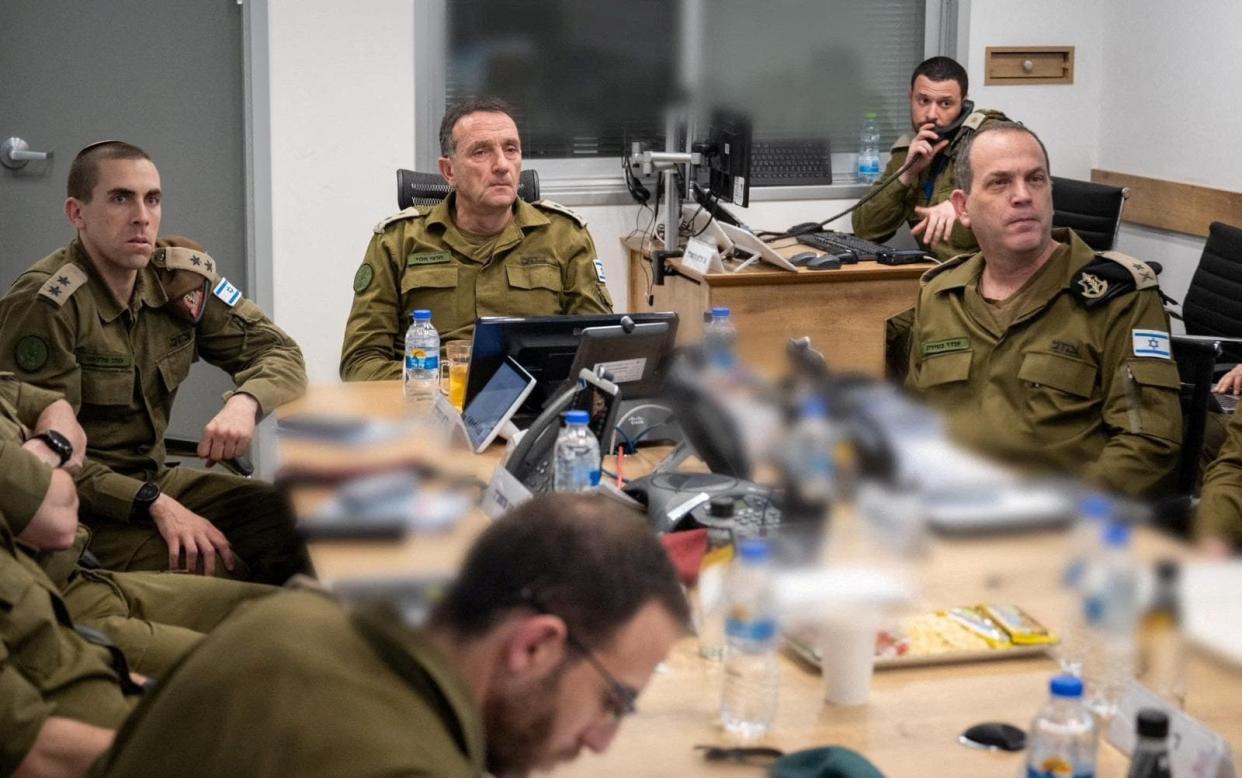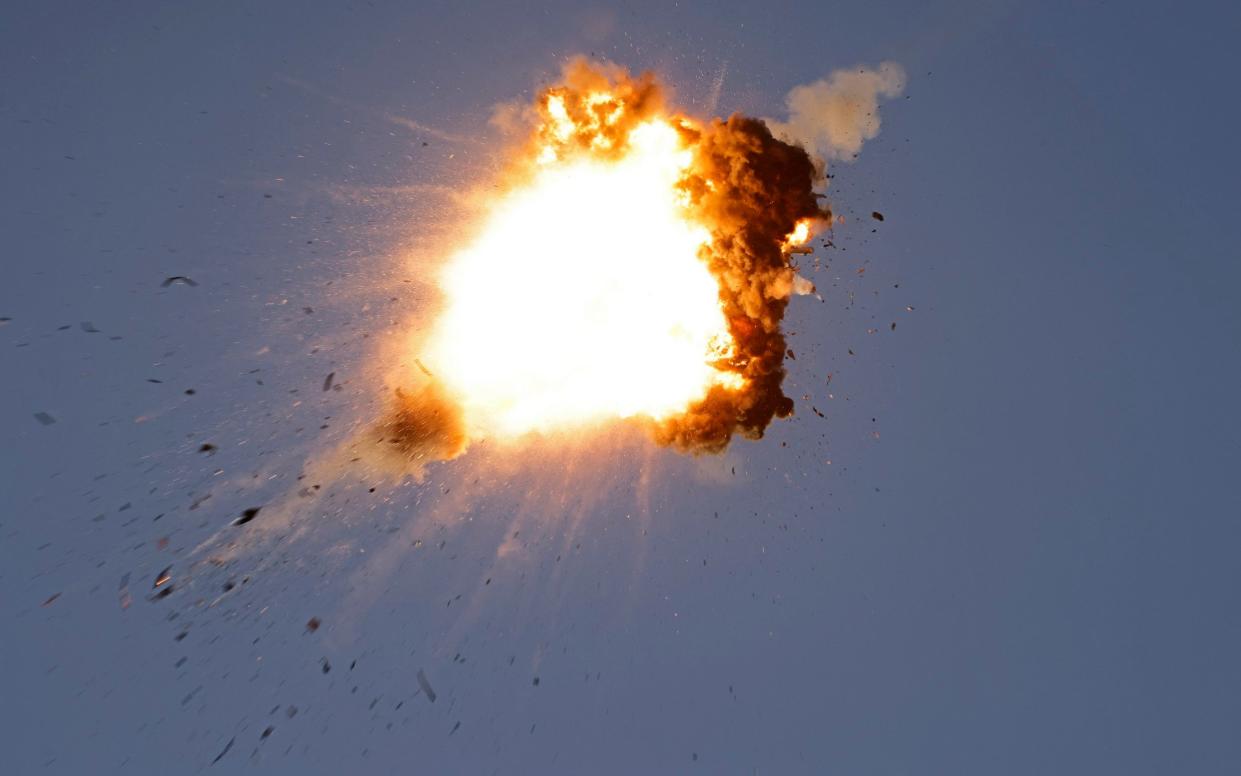Hezbollah’s retribution pulls Middle East to edge of all-out war

Not since Yom Kippur in 1973 has the Middle East been so close to all-out war.
That conflict, also known as the Ramadan War, raged for 19 days between Israel and a coalition of Arab states led by Egypt and Syria. It claimed up to 20,000 lives, including some 2,500 Israeli soldiers. Many thousands more on both sides were maimed and injured.
It’s a reminder of what is at stake after the biggest exchange of fire yet seen on the Israel-Lebanon border as part of the current conflict erupted in the early hours of Sunday morning.
Both sides were reported to have exchanged messages via intermediaries after the initial strikes saying they were “done” and had no interest in further escalation, yet the room for miscalculation is extraordinarily high.
Exactly what happened remains obscured by the fog of war and the desperate need for both sides to establish deterrence through strength – real and perceived.
Israel says it moved first and pre-emptively after detecting Iranian-backed Hezbollah was poised to launch a major strike in revenge for the assassination of Fuad Shukr, one of its most senior commanders, in Beirut on July 31.
Click here to view this content.
Rear-Adml Daniel Hagari, Israel’s military spokesman, said 100 Israeli jets had hit 40 sites in southern Lebanon, destroying thousands of rocket launchers that were primed for use against Israel. The tally was later revised to “hundreds”.
Hezbollah said Israel’s defences had failed and it has successfully hit various Israeli military sites, including a Mossad intelligence building outside Tel Aviv, in an attack involving more than 320 Katyusha rockets and a “large number” of drones.
“The enemy’s claims about the pre-emptive action it carried out, the targets it struck and its disruption of the resistance’s [Hezbollah] attack are empty,” said the group in a statement issued on Sunday morning.
The “main target for the operation” inside Israel was “the Glilot base - the main Israeli military intelligence base”, the group’s leader Hassan Nasrallah added in a televised speech aired later in the day.
Israel denied the intelligence base had been hit and said Hezbollah’s attack had been “mostly” thwarted.
Whether or not the latest exchange can be contained is likely to be determined by the actions and diplomacy of the US and Iran.
Both say they want to avoid a regional war and both have considerable influence over the two sides but do not control them.
Lloyd Austin, the US defence secretary, called Yoav Gallant, his Israeli counterpart, on Sunday morning to stress “the importance of avoiding regional escalation”.
In response, Israel said it was not looking for a wider war but added that its “defence establishment is determined to defend the citizens of Israel and will use all the means at its disposal to remove imminent threats”.
Likewise, Abbas Araghchi, Iran’s new foreign minister, called for dialogue to resolve bilateral issues in a call with the EU’s top diplomat on Thursday.
“In our foreign policy, it is our responsibility to minimise the costs of the [US] aggression to the greatest extent possible,” he said, indicating a desire in Tehran to lower tensions in the region.
Mr Nasrallah’s speech on Sunday afternoon had some of the same political expediency, perhaps reflecting the wishes of his backers in Iran.
He appeared to indicate that the group’s desire for revenge over the Beirut assassination had been satiated and honour restored, albeit leaving the door open to further action.
“We will assess [the] impact of today’s operation, if results are not seen to be enough, we will respond another time,” he told his Arab audience of millions.
Another positive - although a faint one - was that the Gaza ceasefire and hostage talks continued in Cairo on Sunday, although no breakthrough was reported.
Whether or not any of this will be enough for Israel, only time will tell as its political and military class remain under extreme pressure.

Since the start of the war on Oct 7, Israel has had to evacuate 60,000 to 80,000 people from an area of some 650 square kilometres along the Lebanon border – about 3 per cent of its total land mass – because of Hezbollah’s rockets.
In the south around Gaza, many of the kibbutzim and commercial farms still resemble ghost towns.
“We are determined to do everything to protect our country, return the residents of the north safely to their homes and continue to uphold a simple rule: whoever hurts us – we hurt them,” Israel’s prime minister, Benjamin Netanyahu, said on Sunday.
Sunday’s exchange was “not the end of the story”, he added.


